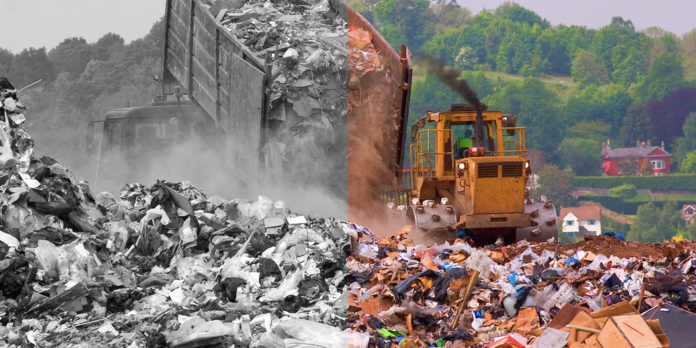In Indian Capital approximately 11,000 tonnes of waste generated daily, a staggering 3,500 tonnes goes unprocessed, painting a dire picture of Delhi’s waste mismanagement

Ravishankar Tiwari
In the bustling streets of Delhi, amidst the cacophony of urban life, lies a silent menace that threatens the very fabric of the city’s environmental integrity: its burgeoning waste crisis. A recent independent audit has cast a harsh light on the grim reality that nearly one-third of Delhi’s garbage remains untreated each day, leaching into the environment and compounding the city’s already towering waste mountains. With approximately 11,000 tonnes of waste generated daily, a staggering 3,500 tonnes goes unprocessed, painting a dire picture of Delhi’s waste mismanagement.
This revelation serves as a sobering reminder of the urgent need for proactive measures to address Delhi’s waste crisis. For years, the city has grappled with its mounting waste burden, yet progress has been slow and sporadic. Despite efforts to implement waste management initiatives, the scale of the challenge continues to outstrip the city’s capacity to respond effectively.
Delhi’s waste crisis is not an isolated phenomenon; it reflects a broader trend observed in megacities worldwide. Rapid urbanization, coupled with unsustainable consumption patterns, has led to an exponential increase in solid waste generation, placing immense strain on existing infrastructure and resources. However, the magnitude of Delhi’s waste problem demands immediate attention and concerted action.
The consequences of untreated waste extend far beyond the confines of the city, permeating the very fabric of its environment and society. From contaminated groundwater to air pollution caused by burning waste, the environmental toll of Delhi’s waste mismanagement is evident and alarming. Moreover, the health risks posed by exposure to hazardous waste compounds further underscore the urgency of addressing this issue.
To confront this multifaceted challenge, a holistic approach to waste management is imperative. This entails not only the implementation of robust infrastructure and technology but also the promotion of sustainable practices and public participation. Central to this approach is the need for effective waste segregation at the source, enabling the diversion of recyclable materials from landfills and facilitating their reuse and repurposing.
Moreover, investment in waste-to-energy initiatives holds promise as a viable solution to both reduce landfill pressure and generate renewable energy. By harnessing the potential of organic waste as a resource rather than a liability, Delhi can mitigate its environmental footprint while contributing to its energy security objectives.
Furthermore, decentralized waste management systems offer a pragmatic alternative to centralized landfill-based approaches, reducing transportation costs and minimizing environmental degradation. By decentralizing waste processing facilities and promoting community-based initiatives, Delhi can foster local resilience and empower citizens to take ownership of their waste management practices.
However, addressing Delhi’s waste crisis requires more than just technological solutions; it demands a fundamental shift in societal attitudes and behaviors towards consumption and waste generation. Education and awareness-raising campaigns play a crucial role in instilling sustainable habits and fostering a culture of environmental stewardship.
Additionally, regulatory measures and enforcement mechanisms are necessary to hold polluters accountable and incentivize compliance with waste management regulations. By imposing penalties on illegal dumping and promoting eco-friendly alternatives, Delhi can create a conducive regulatory environment for sustainable waste management practices to thrive.
Moreover, collaboration between government agencies, civil society organizations, and the private sector is essential to harnessing collective expertise and resources towards a common goal. Public-private partnerships can leverage the strengths of both sectors to implement innovative solutions and scale up successful interventions.
Delhi’s waste crisis is a pressing environmental and public health challenge that demands urgent action. By adopting a holistic approach to waste management, grounded in sustainability, innovation, and public participation, Delhi can chart a path towards a cleaner, greener future. The time for complacency is over; the time for action is now. Let us join hands to tackle Delhi’s waste crisis and build a more resilient and sustainable city for future generations.
(writer is the convener of Lok Sansad)


